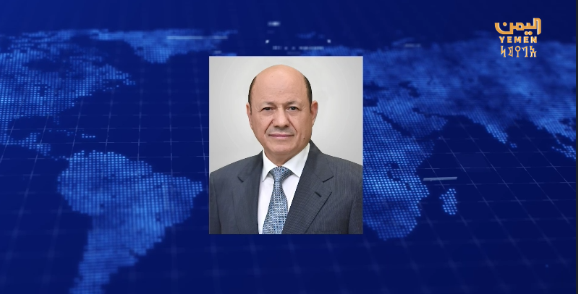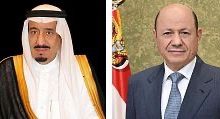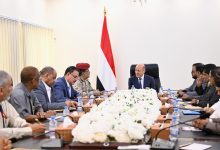The Chairman of the Leadership Council begins an official visit to the Russian Federation.

President Rashad Alimi Begins Official Visit to Russia
On Tuesday, President Dr. Rashad Mohammed Alimi, head of the Presidential Leadership Council, embarked on an official visit to the Russian Federation. This visit comes in response to an invitation from President Vladimir Putin.
Strengthening Bilateral Relations
A source from the Presidential Office informed the Yemeni News Agency (Saba) that President Alimi will engage in discussions with President Putin. The talks will focus on enhancing bilateral relations and coordinating positions on several mutual concerns. Key topics will include developments in Yemen, peace efforts, and regional and international security.
Historical Ties Between Yemen and Russia
The source praised the longstanding relationship between Yemen and Russia, highlighting Moscow’s unwavering support for the Yemeni people and their legitimate leadership in various international forums. The visit aims to reinforce these ties amid ongoing diplomatic efforts led by President Alimi and his council members to unify the international community regarding the Yemeni situation.
Engaging with Russian Officials
During his visit, President Alimi will meet with senior Russian government officials, as well as political, diplomatic, and intellectual figures interested in Yemen’s cultural and civilizational heritage. These engagements will further solidify the partnership between the two nations.
A Significant Milestone in Yemeni-Russian Relations
This presidential visit marks a pivotal moment in Yemeni-Russian relations, which date back to the early 20th century. Yemen was the first Arab country to establish political ties with the former Soviet Union. Historical records indicate that the first official contact occurred in 1927, culminating in the signing of a friendship and cooperation treaty in 1928, which both nations will celebrate in three years.
Diplomatic Developments Over the Years
A significant turning point in the relationship occurred in 1955 when both countries announced the establishment of diplomatic relations. In 1956, Yemen appointed its first non-resident minister to Moscow, while the Soviet Union opened a mission in Taiz.
Following the 26th of September Revolution in 1962 and the declaration of the republican system, the Soviet Union quickly recognized the new Yemeni government on October 1, just six days after the revolution. Moscow supported the revolution and opened its embassy in Sana’a that same year.
When the 14th of October Revolution erupted in southern Yemen in 1963, the Soviet Union backed it as well. Four days after the south’s liberation on November 30, 1967, the Soviet Union recognized the independence of southern Yemen.
Legal Framework for Cooperation
The relationship between Yemen and the Soviet Union evolved significantly, supported by legal frameworks such as the treaties of friendship and cooperation. The Soviet Union actively endorsed the voluntary unification of Yemen on May 22, 1990.
On December 30, 1991, Yemen officially recognized the Russian Federation as the legitimate successor to the Soviet Union, acknowledging all existing treaties and agreements.
Continued Support for Yemen
The Russian Federation has remained a key supporter of the Yemeni people’s choices throughout various stages. Following the Houthi coup in September 2014, Russia stood firmly with the Yemeni legitimacy, voting in favor of relevant international resolutions. This support reflects a rare consensus within the international community to uphold Yemeni legitimacy and reject the coup.
To follow the news in Arabic


